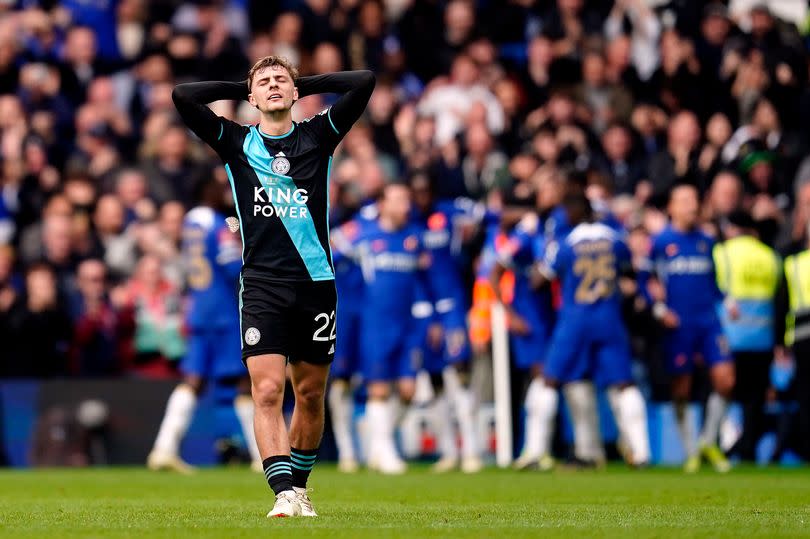Business that must be done by June 30 for Leicester City to avoid PSR nightmare

Kiernan Dewsbury-Hall’s future is on the line with Leicester City just 48 hours from a second potential breach of financial regulations.
To comply with the EFL’s Profit and Sustainability Rules (PSR) for this year, City must make cash before the close of the accounting period on Sunday, June 30. Their best chance of making a significant amount of money is to say goodbye to star midfielder Dewsbury-Hall, and a deal with Chelsea is in the works.
As an academy graduate, any cash generated by Dewsbury-Hall’s departure would go into the books as pure profit and almost certainly solve City’s PSR concerns for the 23-24 season at the very least. The EFL have long predicted City were at risk and placed them under a registration embargo in the early spring.
READ MORE: Three Chelsea players named as potential Leicester City signings in Kiernan Dewsbury-Hall deal
READ MORE: Join our Leicester City WhatsApp group to get transfer news direct to your phone
The £10m compensation paid by Chelsea to City for manager Enzo Maresca and his staff helped the club’s cause but did not completely solve the problem. They still need to make some extra cash and selling Dewsbury-Hall is the most efficient way to do that.
The 25-year-old has previously said he had no intention of leaving City, and his feelings over the matter appear to have put an end to a potential switch to Brighton. A reunion with Maresca is more appealing, and City will be open to it provided their valuation is met.
If a deal was to include a player trade it would not jeopardise City’s compliance with PSR. While all of the profit made from a sale goes into that year’s accounts, the transfer fee paid for a new signing is, as far as PSR is concerned, spread across the accounts that cover the length of the player’s contract.
If, for example, Dewsbury-Hall was sold for £40m, as an academy player who is written into the books at next to nothing, City get all of that profit in their accounts immediately. If a deal for a Chelsea player in return costs £15m, and he’s signed on a five-year deal, only one-fifth of that, so £3m, will go into this year’s accounts.
To comply with PSR for the 23-24 season, City’s losses cannot exceed £13m, which is the Championship’s threshold. Usually, PSR calculation are judged over a three-year cycle, but, unlike the Premier League, the EFL operate with a double-jeopardy rule. It means that any clubs previously found in breach of PSR get their losses capped.
City have been charged by the Premier League for the three-year cycle ending in 2023. If they are found guilty by an independent panel and punished over that, then for the first two years of the three-year cycle the EFL are observing, City’s losses will be capped at the maximum of £35m. It means they only need to meet the threshold for the season just gone. Allowable losses in the Championship stand at £13m.
By selling Dewsbury-Hall and complying with PSR, City would avoid a second potential sanction in the upcoming season. The cases for Everton and Nottingham Forest suggest City will receive at least a six-point deduction if found guilty of the charge that came their way in March.
If they fail to comply with PSR for 23-24, the nature of their punishment is unknown. The Premier League have never deducted points on the EFL’s behalf before, and so a fine seems more likely at this stage. However, that would also be a problem, as it may harm City’s chance of meeting PSR in the future.

 Yahoo News
Yahoo News 
